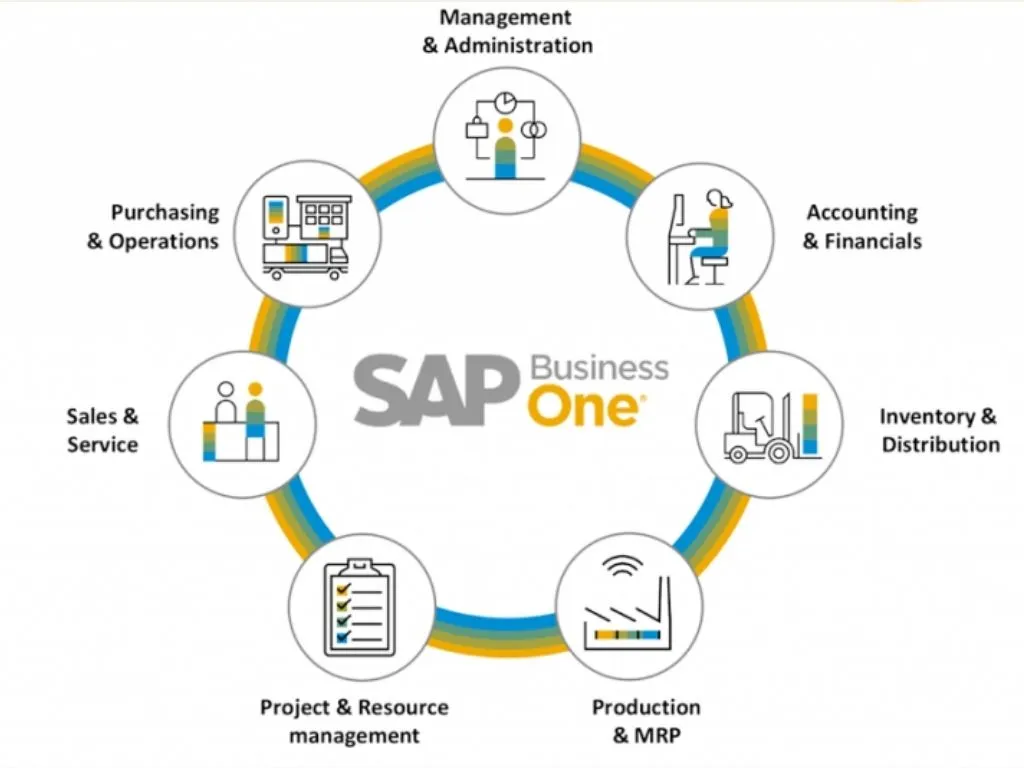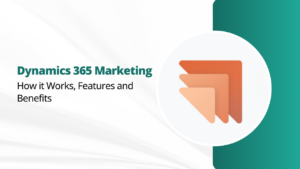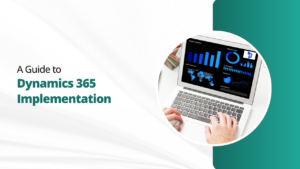The pharmaceutical industry faces unique challenges and opportunities in the business environment. The need to streamline operations and ensure product quality has never been outstanding. SAP Business One, a comprehensive ERP solution, is emerging as a game-changer for the pharmaceutical sector. This article explores the use of SAP Business One for pharmaceutical industry. It also focuses on how SAP B1 is enhancing efficiency, compliance, and performance.
Introduction to SAP Business One
SAP Business One is an ERP solution designed to meet the diverse needs of small and midsize businesses. It offers a unified platform to manage various aspects of a company’s operations. These operations include finance, sales, inventory, and more. This ERP system provides a view of an organization’s data which improves efficiency.
The Pharmaceutical Industry and Its Challenges
The pharmaceutical industry is facing major challenges, which include the following:
1. Complex Supply Chains:
The pharmaceutical industry deals with intricate and multifaceted supply chains. The process of getting raw materials, manufacturing drugs, and distributing them is difficult to manage.
2. Strict Regulatory Requirements:
Pharmaceuticals are subject to strict regulations and quality standards. These regulations require rigorous testing, documentation, and compliance with rules set by health authorities.
3. Increasing Competition:
The pharmaceutical market is highly competitive. There is constant pressure to innovate, develop new drugs, and gain a competitive edge. This competition can make it difficult for pharmaceutical companies to maintain their market position.
4. Product Recalls:
Pharmaceutical companies may need to recall their products from the market due to safety concerns or quality issues. These recalls are costly and damaging to a company’s reputation.
5. Quality Control Issues:
Ensuring the quality of pharmaceutical products is paramount. Any issues in quality control can lead to safety risks for patients.
6. Inventory Management:
Pharmaceutical companies deal with perishable products, and proper inventory management is crucial. Overstocking or understocking can lead to disruptions in the supply chain.
How SAP Business One Addresses these Challenges:
SAP Business One addresses these challenges in several ways:
1. Streamline Supply Chains
SAP Business One provides tools for streamlining and optimizing supply chain processes. It offers real-time visibility into inventory. Pharmaceutical companies can track the movement of products and manage orders. This reduces the risk of overstocking or understocking.
2. Compliance Regulatory Requirements:
SAP Business One includes features that assist in compliance with regulatory requirements. It helps in automating compliance processes. The companies can document and report the information to meet regulatory standards.
3. Market Insights:
SAP Business One provides pharmaceutical companies with insights into market trends. It helps them make informed decisions and gain a competitive edge. This ERP solution enables companies to stay ahead of the competition.
4. Batch Management Features:
SAP Business One is known for its traceability and batch management features. This can help pharmaceutical companies track the production and distribution of products. It allows the isolation of affected batches to reduce the cost of recalls.
5. Monitor Quality Control:
SAP Business One supports quality control processes by ensuring that all quality-related data is monitored. It provides the means to track and document quality control tests. This helps companies maintain product quality and safety.
6. Real-time Inventory Management:
SAP Business One offers real-time visibility into inventory levels. This enables better control and management. This management reduces the risk of stockouts and overstocking and smoother supply chain.
Implementation of SAP Business One for Pharmaceutical Industry

Using SAP Business One for pharmaceutical industry involves a structured approach to ensure a smooth and successful integration. Here’s a step-by-step guide on how to do it:
- Needs Assessment: Begin by conducting a thorough assessment of your pharmaceutical company’s specific needs. Identify the key challenges and goals that SAP Business One will address.
- Vendor Selection: Choose a reliable and experienced SAP Business One vendor. Look for one with a proven track record in the pharmaceutical sector.
- Project Planning: Develop a project plan that outlines the scope, objectives, and timelines of the implementation. This plan should also allocate resources and responsibilities.
- Customization and Configuration:
- Work with the vendor to customize the SAP Business One system according to your requirements. This may include configuring modules for inventory, compliance, quality control, and supply chain management.
- Data Migration: Transfer existing data from your current systems to SAP Business One. Ensure that all data is accurately migrated and validated to maintain data integrity.
- User Training: Train your employees on how to use the system effectively. SAP Business One offers user-friendly interfaces, but proper training maximizes its benefits.
- Pilot Testing: Before full implementation, conduct pilot tests with a select group of users. This helps identify any issues and provides an opportunity to make necessary adjustments.
- Deployment: Roll out SAP Business One across your pharmaceutical organization, department by department.
- Monitoring and Support: Monitor the system’s performance and provide ongoing support to users. Address any issues or concerns promptly to ensure smooth operations.
- Integration with Existing Systems: If your company has existing software systems, ensure that SAP Business One integrates with them. This integration is crucial for data flow and consistency.
- Change Management: Install a change management strategy to help employees adapt to the new system. Address any resistance to change and communicate the benefits of SAP Business One.
- Quality Assurance: Assess the system’s performance, data accuracy, and compliance with regulatory standards. Ensure that it continues to meet your pharmaceutical company’s needs.
- Feedback and Improvement: Encourage feedback from users and stakeholders. Use this feedback to make necessary improvements to the system and processes.
Conclusion:
SAP Business One for pharmaceutical industry emerges as a transformative solution. With its capacity to streamline operations, fortify compliance, and elevate efficiency, it not only helps companies weather the storms of competition but empowers them to rise as industry leaders. As we look to the future, it’s evident that SAP Business One will continue to be the driving force behind the pharmaceutical sector’s progress. In a world where excellence is the benchmark, SAP Business One stands as the key to unlocking the full potential of the pharmaceutical industry. If you need any assistance with the implementation of SAP Business One for pharmaceutical industry,




